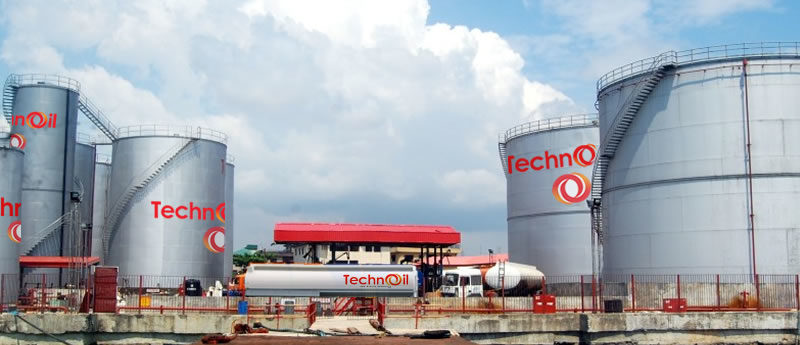Industry Dive: Why it’s not so easy for tech to disrupt Oil and Gas, especially in Africa

In every industry, technology has become an integral part of the work processes such that the impact can’t be quantified. However, one of the sectors that appear not to be absolutely leveraging technology to disrupt its industry is oil and gas.
https://blog.nogtech.ng/2020/10/27/industry-zoom-weighing-innovations-disruptions-nigerias-oil-gas-space/
Research has shown that the global oil and gas exploration and production sector makes up a large portion of the global economy. This is expected to grow in the future as it’s estimated that the global oil production will reach 100 million barrels per day in the next few years, which is up from the current 85 million approximated figure. Furthermore, the report states that as technology evolves in the future, the oil reserves across the globe which are difficult to reach will become more accessible.
Utilising artificial intelligence (AI), machine learning (ML), data analysis, drones and UAVs (Unmanned Aerial Vehicles), augmented reality (AR) cloud and the Internet of Things (IoT) will beyond question increase efficiency, improve services and output in all different parts of three major oil sectors — upstream, midstream and downstream.
This corroborates the oil and gas industry IT trends which states that “Digitalisation is today well-established among oil and gas organisations. By adopting artificial intelligence (AI), cloud and the Internet of Things (IoT), some have experienced exceptional performance gains. 20% to 30% of oil and gas companies have begun developing more aggressive ambitions based on disruptive business models.”
But the question that begs to be answered is, why is it not so easy for technology to disrupt the oil and gas industry, especially in Africa. Let’s explore some reasons it might not be easy for technology to disrupt the oil and gas industry, especially in Africa.
Low domain knowledge
As mentioned earlier, other industries are maximising technology to innovate, create new products, improve their services as well as to increase sales. Some of these industries are fintech, e-health, media-tech, agritech, eCommerce and many more. However, to leverage technology in these industries and get desired results, a level of domain understanding is required.
For many companies in the oil and gas industry, the conventional drawback is the stunted domain knowledge which in turn causes relatively low adoption of technology. Case in point is how artificial intelligence is not fully harnessed in Africa despite the fact that Gartner identified that “AI will soon become a commonplace tool used to achieve operational and business performance.”
On the other hand, there are some companies like AirSynQ, KiaKia Gas, Snapnet amongst within the oil and gas industry in Nigeria that is maximising technology in their products and services
Another block hindering technological disruption is illegal behaviour in the sector.
Corruption
This could also be another reason technology won’t be easy to disrupt the oil and gas industry. “Corruption has remained among the top three challenges over the last four years, with numerous instances occurring across the continent. Despite the existence of anti-corruption programmes at government and corporate levels, the effectiveness of such programmes is questionable,” Chris Bredenhann, PwC Africa Oil & Gas Advisory Leader noted.
Globally, corruption in the oil and gas industry is believed to be pandemic. According to the Corruption Perceptions Index, some of the most corrupt countries have large extractive industries. These countries include Sudan, Nigeria, Libya, Zimbabwe, Angola, Iraq, Venezuela amongst others.
Extracting oil and gas requires resources, large investment and industry knowledge. Public officials are said to most likely request for bribes from companies to grant access to resources needed.
Next on the list is manual equipment as against technology-powered devices.
Heavy use of offline machines and equipment
The low adoption of technology is also visible in how Africa’s energy consumers still to a large extent prefer the use of equipment such as generators, machines and vehicles that require fossil fuel energy sources to work.
Although, with technological innovation and development, it will “force a shift in consumer preferences and choices, as seen with the rise of off-grid technology in Africa.” But the shift is largely coming at a snail’s pace.
Little expertise in mechanical interactions
According to a survey of more than 17,000 industry professionals, the oil and gas sector is facing a skills crisis, BBC reports. While research from PwC stated that the lack of skills development in Africa will continue to be a problem and it’s generally becoming a global challenge in the oil and gas industry.
In a bid to salvage the situation, new technologies such as the internet of things (IoT), machine learning, augmented reality, artificial intelligence and more can be employed in revolutionising the oil and gas industry.
Asides this, unavailability of data and intelligence is also a problem to grapple with.
Data and intelligence unavailability
You’ve probably heard that “Data is the new oil, even in the oil industry.”
Considering the digital transformation going in every sector, data analytics and intelligence are part of the key elements driving the change.
However, for a continent like Africa where data collection, processing and preservation is a challenge, the statement “Data is the new oil, even in the oil industry” doesn’t hold true.
If data can be collated, stored, analysed and perfected, a deep wealth of insight can be derived from the data set to make notable decisions that will profit the oil and gas industry in Nigeria and Africa as a whole.
This leads us to the last reason on the list.
High entry barrier and heavy regulations
In the oil and gas industry, the barriers to entry are very high and governmental and environmental regulations do make it any easier. As much as the demand for oil and gas is on the high side, the supply is low because of the low entry barrier which will give room to other suppliers.
When it comes to the capital investment needed to explore new oil sites, research and development, obtaining the land and drilling rights, and then extracting the oil, having expensive fixed capital, there’s a high entry barrier. Another side to this is that the already established companies make a huge profit, giving a room to less competition considering that everyone has a market share.
Conclusively, a PwC report states that “About 90% of African gas production continues to come from Algeria, Nigeria, Egypt and Libya though the overall quantity produced in 2016 reduced by 1.1% down to 208.3bcm.” This goes to show that if technology will disrupt the oil and gas industry in Africa, the key countries have a major role to play.




